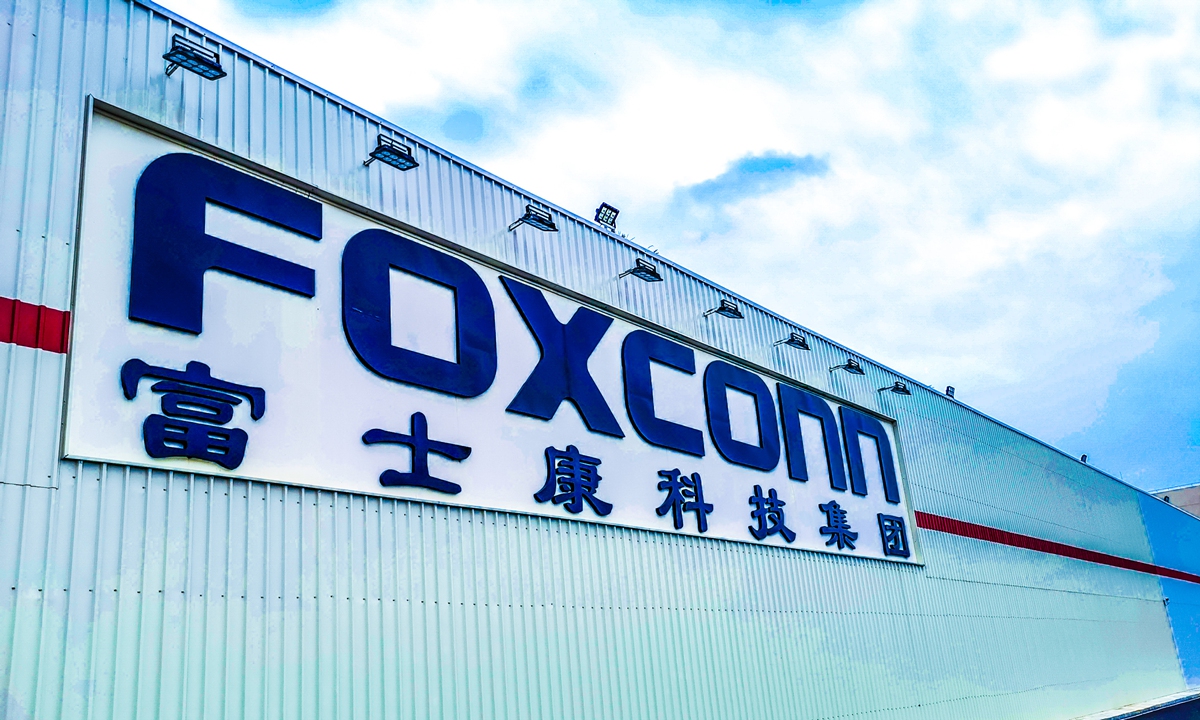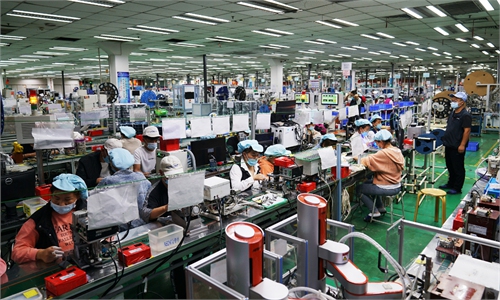Update: Foxconn apologizes for a technical error that caused changes in employees’ subsidy policy

Photo: VCG
Hon Hai Technology Group (Foxconn) apologized on Thursday for a technical error that caused changes in employees’ subsidy policies, after some online videos showed that some disappointed workers protested in its plant in Zhengzhou, Central China's Henan Province.
"We fully understand the concerns of some newly recruited employees in the Zhengzhou Park about possible changes in the subsidy policy. Our team has been looking into the matter and discovered a technical error occurred during the process. We apologize for an input error in the computer system and pledge that the actual pay is the same as prior agreed upon in official recruitment posters," Foxconn said in a statement sent to the Global Times.
A dispute erupted late on Tuesday at Foxconn's Zhengzhou plant, a major production base for iPhone products, due to a discrepancy between the actual payments and previous recruitment information, domestic financial news outlet Yicai reported.
In the statement on Thursday, Foxconn said that at present, the park is continuing to actively communicate with the employees affected by incorrect information, explaining that the salaries and bonuses of all employees are paid in accordance with company policies. During the communication process, the company will also try its best to actively solve the concerns and the reasonable demands of employees.
For employees in the Zhengzhou Park who want to return to their hometowns, the group will, as always, fully respect the individual wishes of the workers and provide corresponding care subsidies for returning employees. For employees who choose to stay and are willing to join the company, the group will continue to provide comprehensive support, the statement read.
"Regarding any protest, the company will continue to communicate with employees and the government to prevent similar incidents from happening again," Foxconn said in a statement sent to the Global Times. It also sought to clarify disputes about work allowances.
In the statement on Wednesday, Foxconn said that on the evening of November 22, some new hires to the Zhengzhou Park appealed to the company regarding the work allowance, which they had doubts about. The company has emphasized that the allowance has always been fulfilled based on contractual obligations and will continue to communicate with relevant colleagues, the statement added.
It has been widely reported that Foxconn was increasing incentives for production line workers in order to retain existing employees and recruit more new ones to expand output in peak order season.
According to figures provided by a Foxconn recruitment agency, under the latest policy, a Foxconn worker in Zhengzhou Park can make 30 yuan ($4.18) an hour, adding the 30-day attendance reward of 3,000 yuan which is supposed to be included in the monthly salary, Yicai reported.
The Zhengzhou facility is the main manufacturing base for Foxconn to produce iPhones for Apple, with more than 90 production lines and about 350,000 workers.
The company has been launching mass recruitment to restore production capacity, with some 10,000 new workers needed for its manufacturing operations, while the factory is continuing to do a good job when it comes to dynamic epidemic prevention and control under government regulations and support, the Global Times has learned from two sources close to the company's recruitment team earlier this month.
In the statement on Wednesday, Foxconn also denied online speculation that some workers who tested positive for COVID-19 have been living in the dormitories.
"Foxconn clarifies that online speculation about employees who are Covid positive living in the dormitories of the Zhengzhou Park campus is patently untrue," it said, adding that before new hires move in, the dormitory environment undergoes standard procedures for disinfection, and it is only after the premise passes government checks that new employees are allowed to move in.
Global Times

